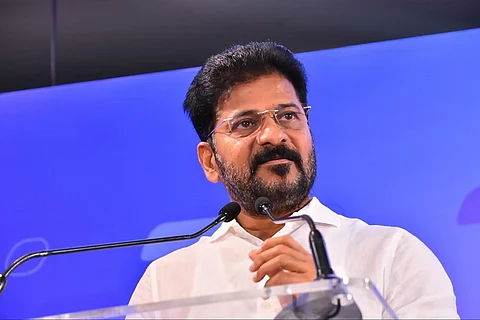

Amid the ongoing debate over the National Education Policy (NEP) 2020 and Hindi language imposition, Telangana Chief Minister A Revanth Reddy categorically stated that he is against the imposition of Hindi. Speaking at a conclave organised by India Today, he asserted that people should have the freedom to learn a language based on necessity rather than compulsion.
“There is no need to coerce people into learning a language,” Revanth said.
Arguing that people can learn any language without anyone forcing them to, he said, “In college you have the option to learn French, German, and Sanskrit. If you want to learn, you can…”
While acknowledging that Hindi is the most spoken language in the country, the Chief Minister clarified that it is not the “national” language. “The most spoken language is Hindi, followed by Telugu and Bengali. If Modiji is so concerned about Hindi, what has he done to promote Telugu?” he questioned. He further pointed out that civil service exams are no longer conducted in Telugu despite the language being widely spoken.
Questioning the preferential treatment for Hindi, he said, “Why is Hindi being imposed on our heads?”
When the moderator suggested that learning Hindi could be optional, Revanth Reddy responded, “No one has a problem in making Hindi an optional language. Today I am speaking in Hindi. I learnt it and I am speaking it, right? Please don’t thrust Hindi on us. We are against that.”
He argued that people will learn the language based on their needs. “We have learnt to speak in English despite it not being our mother tongue. For employment and business, people are learning English. Do we have any benefits in learning Hindi?” he asked. Giving his own example, he said that learning Hindi benefitted him in politics. “It helped me attack Modi,” he quipped.
The language debate was triggered after the BJP-led Union government urged Tamil Nadu to adopt the three-language policy, which includes Hindi, as part of the NEP, and refused to release funds unless the state complied. However, Tamil Nadu, which has followed a two-language policy (English and Tamil) for decades, has rejected the demand, leading to tensions between the Union government and the DMK-led state government.
Meanwhile, the Telangana government recently made learning Telugu mandatory in all schools across various educational boards, including state, CBSE, and ICSE institutions.